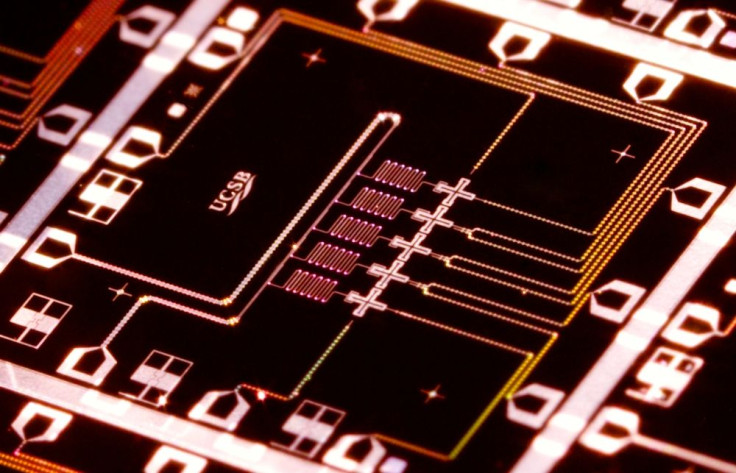Google Announces It Is Developing New Super-Fast Quantum Computing Chip With UC Santa Barbara

Google Inc (NASDAQ: GOOGL) is backing a new effort to build quantum-computing processors based on superconducting electronics, the Internet search giant said in a post Tuesday.
The effort is the second one in the field for Google, which already collaborates with D-Wave Systems Inc., a Canadian startup company that’s claimed to have commercially shipped quantum computers. Google and NASA together have purchased one such machine and Lockheed Martin Corporation (NYSE: LMT) is another buyer. Financial firm Sterne Agee Group estimated in a research note, in March, that the machines cost more than $10 million apiece.
Google’s Quantum Artificial Intelligence team will collaborate with the University of California, Santa Barbara on the new project to “design and build new quantum information processors based on superconducting electronics,” Hartmut Neven, the company’s director of engineering, said in the post.
The promise of quantum computers, taking advantage of how atoms can perform memory-processing tasks, is that such computers should be able to deliver incredibly higher processing power and speed versus conventional computers that use silicon-based semiconductor chips.
However, scientists are yet to agree on whether D-Wave’s quantum computer is indeed one, after a recent test showed it did no better than a conventional computer in solving increasingly complex problems.
UC Santa Barbara’s John Martinis, a London Prize winner, and his team will work with Google on the new project. The London Prize recognized his “pioneering advances in quantum control and quantum information processing,” according to the Google post.
“With an integrated hardware group the Quantum AI team will now be able to implement and test new designs” for quantum processors, testing, along the way, new theoretical knowledge in the area, Neven said, adding that the D-Wave machine jointly owned by NASA and Google will be upgraded.
"We will continue to collaborate with D-Wave scientists and to experiment with the ‘Vesuvius’ machine at NASA Ames which will be upgraded to a 1000 qubit ‘Washington’ processor," he said.
© Copyright IBTimes 2024. All rights reserved.






















